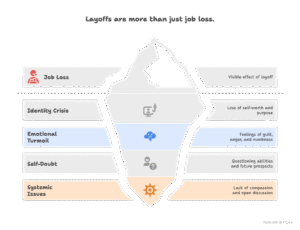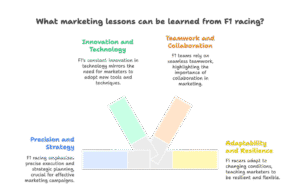
How Marketing Roles Mirror Cricket Roles
Intro:
Cricket has been a constant in my life. As a fan (pretty much just like the rest of the country), I’ve found it mirrors leadership in more ways than one. The patience of a test innings, the calculated risks of a T20 chase — all reflect what it takes to build and lead great teams in marketing and beyond. Here are my lessons or learnings that I’ve imparted over the years;
👉 Patience Wins Over Impatience
Building marketing momentum is just like a big innings, it requires patience. Not every campaign goes viral overnight. Sometimes, the singles matter more than the sixes. This is like Sachin Tendulkar having to wait 22 years for a world cup or Virat Kohli having to wait 18 years for an IPL Trophy. I’ve had to grind, sweat everyday, and even then I’ve been in a position where results haven’t been in my favour. Leadership questioned me just like critics, coaches and selectors questioned Sachin or Virat regarding their form. But just like them I’ve continued working in the right direction, because one day, we will hold the cup in our hands.
👉 Teamwork Over Individual Brilliance
A single batsman can’t win a match. Similarly, no single marketing channel delivers sustainable growth. Team alignment — across performance, brand, content — is everything. Just like a winning cricket team, a high-functioning marketing team needs defined roles and synergy.
- Brand Marketing → The Captain
Sets the vision, aligns the team, builds long-term brand value — much like a captain guides the team toward victory. - Performance Marketing → The Bowler
Analytical, outcome-driven, and always adapting. Just like a bowler varies pace and line, performance marketers test, tweak, and optimize. - Content Marketing → The Batsman
Builds the narrative over time. Plays for the long game, adjusts tempo — similar to how good content nurtures trust before conversion. - SEO / AIO / GEO → The Fielder
Does the invisible but vital work. Great fielding saves runs; great SEO, AIO & GEO brings in consistent organic growth. - Strategy & Leadership → The Coach
Builds structure, mentors the team, and plans long-term — just like a coach setting the foundation for success.
👉 Handling Pressure Situations
Tight campaigns with high revenue & ROAS targets feel like defending 10 runs in the last over. Calmness under pressure helps us see solutions that others may miss. I’ve been in a situation when during my early days, I’ve not dealt with Calmness but instead jumped to try and solve it without giving it a thought. We need to be calculated, do we bowl a Yorker or a slow ball, same way, we need to check if we need to improve, keywords, creatives / adcopies, audience, landing page etc what will help us get to the revenue & ROAS targets. I’ve tried to do the same and over time I’ve improved, become more calm, tried to see the bigger picture and this has helped me to drive myself and the team in the right direction.
👉 Learning From Losses
You lose some matches. You lose some campaigns. The key is post-mortem and iteration. Cricket normalizes loss — and that mindset makes you a better marketer. I’ve had instances where I’ve lost more than I’ve won. Campaigns had lower ROAS in spite of continuous improvements, traffic and revenue not scaling in spite of launching pages. But what mattered was how I reworked the campaigns or pages for it to drive traffic, revenue.
👉 Continuous Improvement
Every player works to be better. I apply the same mindset to marketing — through learning new tools, embracing AI, and optimising my own leadership style. I remember that when I interviewed at HiveMinds, my interviewers were Kiran & Sanjay and they asked me “What is Digital Marketing?” and I said “I don’t know, but teach me and I’ll learn better and faster than anyone else”. I’ve kept this aspect with me even today. Then I learnt Digital Marketing, today I am learning to use AI Tools, N8N etc to improve mine and my teams’ productivity.
Final Thought:
Marketing leadership is a long-format game. I strive to play it like a great cricket innings — with resilience, adaptability, and joy. It doesn’t matter which company I was at, what matters if I played like it was an innings worth remembering. Did I do enough that even after I’ve left, I’m happy and the people who were working with me remember me for what I’ve done.


